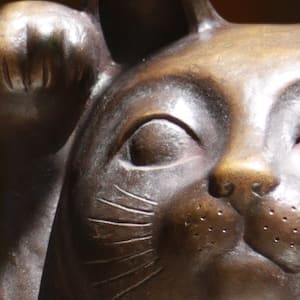tell fortunes: Idiom Meaning and Origin
What does ‘tell fortunes’ mean?
The idiom "tell fortunes" means to predict someone's future - often by using supernatural methods or reading signs. It is used figuratively to describe any attempt to predict what will happen.

Idiom Explorer
The idiom "time will tell" means that the truth or outcome of a situation will only become clear or known with the passage of time.
The idiom "tell you the truth" is a way to emphasize honesty in a statement, suggesting that the speaker is about to share their true thoughts or feelings on a matter. It signifies a candid and sincere expression.
The idiom "tell the truth" means to be honest and not lie or deceive. It is often used in the context of revealing or sharing accurate information or facts without any distortion.
The idiom "tell tales out of school" means to reveal or gossip about private or confidential information or secrets, especially ones that should not be shared publicly.
The idiom "tell tales" means to reveal or disclose secret information or to give away confidential or incriminating details about someone or something.
The idiom "tell it to the marines" means don't expect me to believe a ridiculous story or lie. It implies that only someone naive or gullible, like a new recruit in the marines, would believe such a tale.
The idiom "tell it to the judge" means to present your case or argument to the person in authority who has the power to make a decision or pass judgment on it.
The idiom "tell apart" means to distinguish or recognize the difference between two or more similar things or people.
The idiom "tell against" means to work or speak in a way that is unfavorable or damaging to someone or something.
Fortune's Secrets Unveiled
Tell fortunes is an idiom that refers to predicting or foretelling someone's future. The phrase dates back to the early 17th century and was originally used in the context of fortune-telling and divination. It can also have a metaphorical meaning, suggesting the ability to predict or reveal what will happen in someone's life.
The act of telling fortunes is often associated with various methods such as reading tea leaves, consulting Tarot cards, or interpreting palm lines. These practices rely on symbolic clues and personal intuition to offer insights into someone's future. For those who believe in these techniques, telling fortunes can provide guidance and answers to life's uncertainties.
The figurative use of the idiom goes beyond fortune-telling and can describe someone who claims to have insight into the future. It is often used to refer to individuals who believe they can predict outcomes or foresee events before they occur. This can be seen in fictional characters, like the magical seers in fantasy novels, or in real-life individuals who claim to have psychic abilities.
One related idiom is "tell tales." This expression refers to the act of spreading rumors or gossiping about others. Similarly, when someone tells fortunes, they may also reveal personal information about others or make claims about their future. This connection highlights the potential for misinformation or exaggeration when it comes to predicting the future or revealing secrets.
Another related idiom is "time will tell." This phrase suggests that the truth or outcome of a situation will become clear over time. When telling fortunes, the accuracy of predictions may only be discerned as events unfold. While some may believe in the validity of fortune-telling, others may view it skeptically and wait for time to reveal the truth.
Similarly, the idiom "pray tell" is used to politely request information or ask someone to explain something. When telling fortunes, people often seek guidance or clarification about their future. They may ask fortune-tellers questions to gain insights or seek answers to specific concerns. This connection emphasizes the role of communication and inquiry when it comes to understanding one's future.
"tell the truth" is another related idiom that highlights the importance of honesty and transparency. When telling fortunes, truthfulness is crucial in order to establish trust and credibility. People who seek fortune-telling services expect to receive genuine insights and accurate predictions. The idiom reminds both fortune-tellers and those seeking information to prioritize truth and integrity.
The phrase "tell tales out of school" refers to sharing or revealing confidential or intimate information. In the context of fortune-telling, fortune-tellers often ask individuals to share personal details or experiences in order to provide accurate predictions. However, it is essential for fortune-tellers to respect the privacy and confidentiality of their clients, ensuring that they do not disclose sensitive information to others. This connection highlights the ethical considerations and responsibility associated with telling fortunes.
The idiom "tell fortunes" originated from the practice of fortune-telling and has since acquired a metaphorical meaning. It is commonly used to describe the act of predicting or revealing someone's future, in both literal and figurative senses. Whether associated with the mystical art of divination or attributing foresight to individuals, the idiom captures the human fascination with the unknown and our innate desire to gain insights into what lies ahead.
Example usage
Examples:
1. She began studying astrology so that she could tell fortunes at parties.
2. The old woman had a gift for telling fortunes and many people sought her out for guidance.
3. The mysterious fortune teller at the carnival claimed to be able to tell fortunes from a crystal ball.
More "Prediction" idioms



